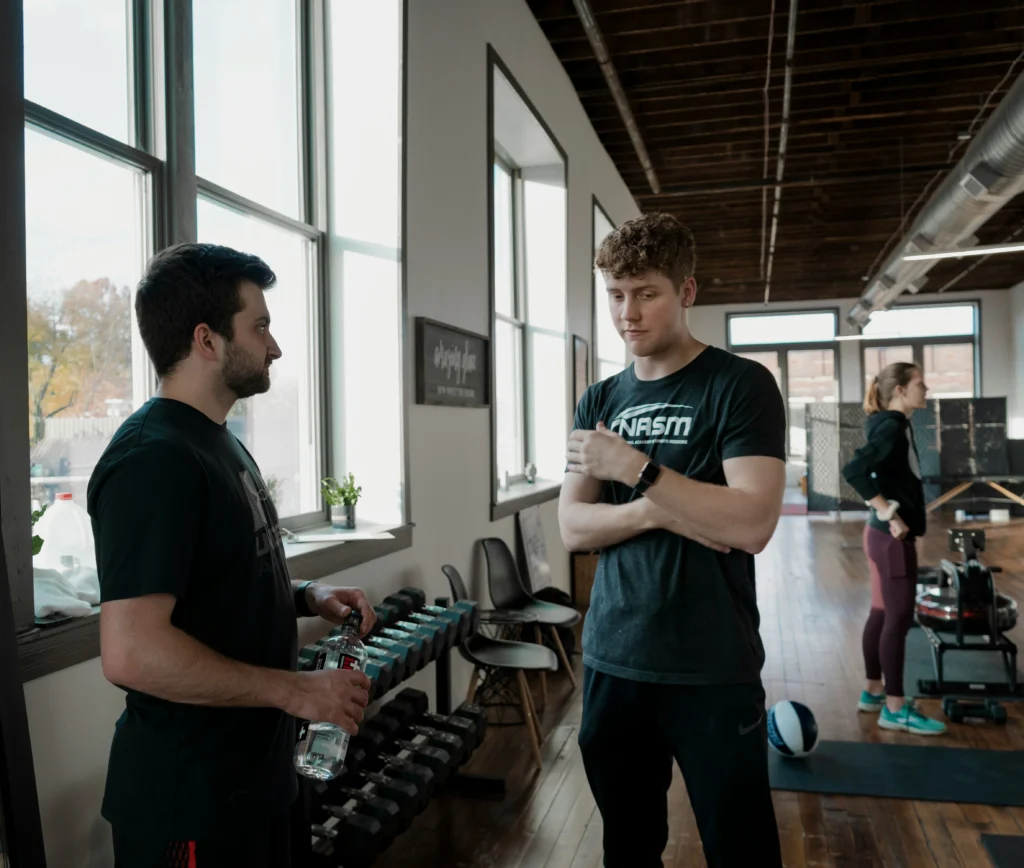
A NASM survey identifies GLP-1s as a top challenge for personal trainers, but it’s also a big opportunity for fit pros who can successfully guide their clients through the complexities of medical weight loss
As weight loss drugs like Ozempic and Wegovy reshape categories from nutrition, supplements and even coffee, fitness professionals say their roles are evolving from calorie counters to essential partners in strength and longevity, with findings suggesting a positive outlook for their careers.
That’s according to new data from the National Academy of Sports Medicine (NASM), based on a survey of nearly 500 trainers and coaches that signals a reset of what it means to be a fitness professional.
According to NASM, longevity and strength training are viewed as the industry’s biggest opportunity (46%), while the rise of GLP-1s is now considered its second-largest challenge, just behind artificial intelligence.
“This is a wake-up call for the fitness industry,” NASM head of product Mike Fantigrassi said. “The conversation is no longer just about the number on the scale; it’s about the quality of the weight being lost. Clients are coming to our professionals with a new, urgent fear: ‘Am I losing essential muscle mass?’”
Fantigrassi added that the challenge also extends into the realm of behavioral change and holistic health, which led to NASM creating the specialized Understanding Weight Loss Medications course.
“It also underscores the vital role of our Certified Wellness Coaches and Nutrition Coaches, who are uniquely equipped to guide clients on the mental, habitual and nutritional aspects of this profound lifestyle change,” Fantigrassi said.
GLP-1s are creating a new kind of client, according to 60% of fitness professionals, one whose biggest concern is preserving lean mass, not just shedding pounds.

What’s more, nearly 70% of fitness professionals believe their role will permanently shift away from calorie burning and weight loss toward strength training and longevity coaching.
The survey also shows that 74% of fitness professionals agree that collaboration with medical providers is no longer optional. With clients using GLP-1s citing muscle loss as their top concern, 60% of trainers report that this is the primary issue raised in sessions. Half of the professionals surveyed report observing changes in body composition that could be described as “skinny fat,” defined as smaller physiques that are weaker and less toned.
Americans Are Still Skeptical of GLP-1s. Can Fit Pros Help?
NASM’s findings echo a broader consumer sentiment. A recent Levity survey of 1,000 Americans found that nearly three-quarters see GLP-1s as a shortcut, with 60% worrying the drugs bypass healthy habits like diet and exercise. That skepticism reinforces NASM’s point that trainers are essential, not just for protecting lean muscle but for helping clients build lasting routines for long-term success.
And at a time when headlines warn of AI replacing jobs and workers across industries worry about the longevity of their careers, the NASM survey points to a different reality for fitness professionals: the demand for specialized, human-driven coaching is only intensifying.
“We certainly see that AI is the leading challenge for fitness professionals today, but the industry’s real focus is shifting toward opportunity,” NASM senior brand manager Tyler McDonald told Athletech News. “The value of a professional is no longer about simple weight loss or traditional fitness; the new mandate is healthspan and longevity. The rise of GLP-1 medications simply accelerates this, forcing the trainer’s role to evolve from a ‘calorie burner’ to an essential partner in preventing muscle loss and driving better long-term outcomes.”
He added that fitness professionals have the chance to use AI for optimization, while leveraging their specialized human expertise to tackle complex client needs, whether that’s for a GLP-1 user or the general population.
“This is a clear elevation of the profession, a complex human role that technology cannot fulfill alone,” McDonald said.
